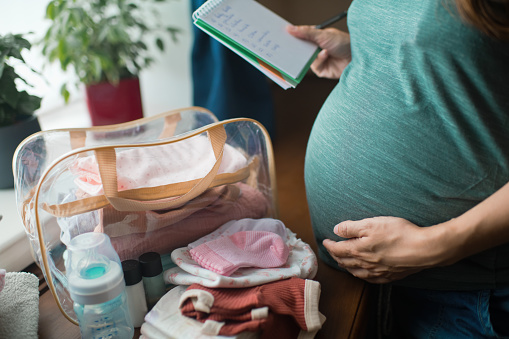Introduction:
Trying to conceive a baby is an exciting and emotional time for many couples, but it’s not always as straightforward as it seems. In fact, fertility issues affect one in six couples in the UK alone, and there are many common issues that can arise when trying to conceive. In this blog post, we’ll explore some of the most common issues couples face when trying to conceive and offer advice on how to overcome them.
Understanding Fertility:
Before diving into common fertility issues, it’s important to understand what fertility is and how it works. Fertility refers to the ability to conceive a child, and it depends on a variety of factors, including age, health, and lifestyle choices. For women, fertility is influenced by the menstrual cycle, which is regulated by the hormones estrogen and progesterone. For men, fertility is determined by the quality and quantity of their sperm.
Common Fertility Issues:
- Age-related infertility: Women’s fertility starts to decline in their late 20s and early 30s and drops significantly after the age of 35. Men’s fertility also declines with age, although it tends to happen more gradually than in women. Age-related infertility can make it harder to conceive, but it’s not impossible.
- Irregular menstrual cycles: Irregular menstrual cycles can make it difficult to predict ovulation, which is the key to conceiving. This can be caused by a variety of factors, including stress, hormonal imbalances, and polycystic ovary syndrome (PCOS).
- Low sperm count: Low sperm count is a common cause of male infertility and can be caused by factors such as smoking, alcohol consumption, and certain medications.
- Blocked fallopian tubes: Blocked fallopian tubes can prevent the egg from reaching the uterus and can be caused by infections, endometriosis, and other conditions.
- Unexplained infertility: Sometimes, despite extensive testing, the cause of infertility remains unknown. This can be frustrating for couples, but there are still options for treatment.
How to Overcome Fertility Issues:
- Maintain a healthy lifestyle: Eating a balanced diet, getting regular exercise, and avoiding smoking and excessive alcohol consumption can all help improve fertility.
- Use ovulation predictor kits: Ovulation predictor kits can help women track their menstrual cycle and identify the most fertile days for conception.
- Consider fertility treatments: There are several fertility treatments available, including intrauterine insemination (IUI), in vitro fertilization (IVF), and intracytoplasmic sperm injection (ICSI).
- Seek medical advice: If you’ve been trying to conceive for over a year (or six months if you’re over the age of 35) without success, it’s a good idea to seek medical advice.
Conclusion:
Trying to conceive can be an emotional rollercoaster, but it’s important to remember that you’re not alone. Fertility issues are common, and there are many resources available to help you overcome them. By understanding common fertility issues and taking steps to improve your fertility, you can increase your chances of conceiving and starting your family.
Frequently asked questions (FAQ’s) about infertility:
What are the most common infertility problems?
The most common infertility problems are age-related infertility, irregular menstrual cycles, low sperm count, blocked fallopian tubes, and unexplained infertility. These issues can affect both men and women and can make it difficult to conceive.
What causes infertility issues?
Infertility can be caused by a variety of factors, including age, genetics, hormonal imbalances, lifestyle factors, and underlying medical conditions. Some common causes of infertility include PCOS, endometriosis, and low sperm count.
What are 3 problems that can cause infertility in females?
Three problems that can cause infertility in females are polycystic ovary syndrome (PCOS), endometriosis, and blocked fallopian tubes. These conditions can make it difficult for the egg to be released, reach the uterus, or implant properly.
What are 4 causes of female infertility?
Four causes of female infertility include hormonal imbalances, problems with ovulation, blocked fallopian tubes, and age-related decline in fertility. Other factors, such as obesity, smoking, and alcohol consumption, can also contribute to infertility in women.
When is a female most infertile?
A female is most infertile during and immediately after menopause. Menopause marks the end of a woman’s reproductive years, and fertility declines significantly in the years leading up to menopause.
How do I check my fertility?
There are several ways to check your fertility, including tracking your menstrual cycle, using ovulation predictor kits, and undergoing fertility testing with a doctor. Fertility testing may involve blood tests, ultrasound scans, or other diagnostic tests.
How much is a fertility test in the UK?
The cost of a fertility test in the UK can vary depending on the type of test and where it is performed. Private clinics may offer fertility testing packages that range from a few hundred to several thousand pounds.
Can you get a fertility test on the NHS?
Yes, in some cases, you can get a fertility test on the NHS. However, the criteria for eligibility may vary depending on your age and other factors. It’s best to consult with your doctor to determine if you are eligible for NHS-funded fertility testing.
Can infertility be cured?
In some cases, infertility can be cured or treated with medications, lifestyle changes, or fertility treatments such as IVF or IUI. However, the success of these treatments may vary depending on the underlying cause of infertility and other factors. It’s important to consult with a doctor or fertility specialist to determine the best course of action for your specific situation.
References:
- https://www.nhs.uk/conditions/infertility/causes/
- https://www.mayoclinic.org/diseases-conditions/female-infertility/symptoms-causes/syc-20354308
- https://www.mayoclinic.org/diseases-conditions/male-infertility/symptoms-causes/syc-20374773
- https://www.healthline.com/health/female-infertility
- https://www.healthline.com/health/how-to-check-fertility




